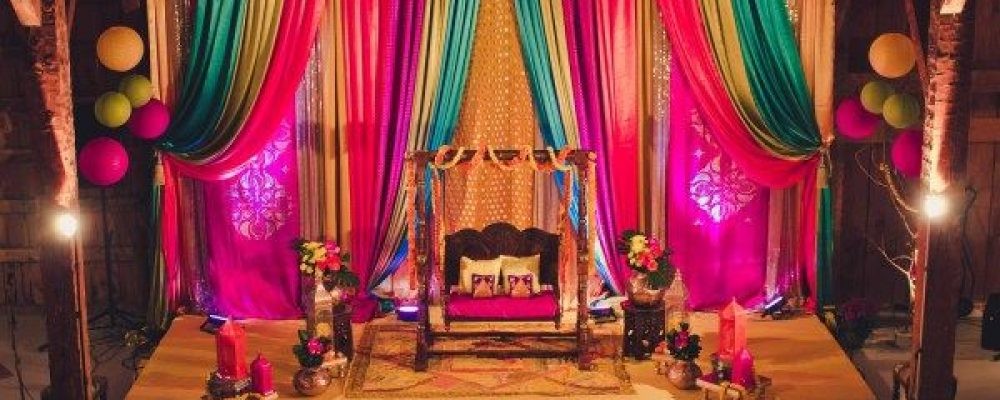
Only when you spend money you do not have, can you buy something you do not need, to impress people you do not like

I was a teenager when I saw my first chocolate fountain at a wedding. In that moment, I sincerely believed this was the most wonderful thing to have happened to me. But before I could dip a marshmallow into what looked like elixir to me, an older couple arrived, gently shoved me away, tasted the chocolate, and one of them declared "Gross, this is local chocolate. Why couldn’t they get Swiss chocolate like the bride’s family had done yesterday?"
I still went on to taste the chocolate, and frankly found it delicious. But the remainder of the wedding event sported rumours about how the groom’s family held its purse strings too tight.
The Pakistani wedding is a performative event, a show put on for the loag in your life. And the show serves two very precise purposes: one, to show how happy the bride and groom are, and two, to show how wealthy the families of the bride and groom are. This wealth can be displayed by ensuring that a film actor or the chief justice comes to your wedding, it can be shown by flaunting the law and serving chicken and beef on the same event, and/or it can be exhibited via the bride and groom’s outfits and jewellery.
There is nothing uniquely Pakistani, or even South Asian about the performative wedding phenomenon: similar wedding industries exist around the globe. Sure, our weddings may have more colour and music, we take pride in our traditions and rituals, but all these elements boil down to the dikhawa that weddings circulate around. Nothing is enough. Not even chocolate fountains.
One oft-used easy excuse for the dikhawa is modernity. "Beta, this ostentatious, this flaunting of money all came with modernity. Things were not like this before. Weddings in the village were sweet and simple," says an uncle.
But the transactional and commodified nature of the Pakistani wedding has little to do with modernity. The age-old doodh pillai, joota chuppai, raasta rokna, ghutna pakarna, and whatever else are just different ways of extracting money from either party - sometimes that money is used by the opposing party to pay off wedding bills, other times the amount is loudly exclaimed at the event to decide how stingy or how generous the groom is, which is thus supposed to predict how happy and comfortable the bride will be with him.
Showing off the dowry and the bari to guests and family members is done in the same spirit.
I try to avoid wedding events -- I would’ve avoided my own if I could, but we are all bound by the same social contract -- so I asked other people what they thought of wedding rituals. Many people disagreed with me.They say the rituals are cute!
Plus, many of the rituals, like kheer chatai, paondhulai, and Arsi Mushaf (when the bride and groom look at each other via a mirror) were created because the bride and groom had never met before and these rituals were meant to break the ice between them. I could have found this notion cute, and I can imagine the giggles these rituals elicit, except that I am not entirely sure that I want to celebrate marriages in which the bride and groom have never met before.
But to be fair to my uncle and his nostalgia for the sweet weddings of yesteryear, in the mid 2000s, a few months after social media interrupted the social fabric of the world, the Pakistani wedding did experience a change: the arrival of the modern wedding photographer.
These mostly young, creative, photographers and videographers used social media to overthrow the kingdoms of Dossanis, Afzls and of course, that one uncle who insisted on covering all family weddings since it was a seamless excuse to photograph young girls all evening.
To some extent, the modern wedding photographer changed culture - that thing we believe is immutable - by taking precedence over the baraat. Sure, everyone waits for the baraat with bated breath because their arrival is intricately connected to dinner, but can you remember a wedding where the baraat was allowed to arrive before the photographer? The hosts may be running after the baraat, but the baraat runs after the photographer, the most important person at the wedding.
The photographers not only control the wedding performance; they also decide how the event will be rendered in a 4-minute video that will be circulated on Facebook shortly after the wedding. They select who deserves a solo, and who is ‘close enough’ to the bride and groom to have earned a photo with them. They control the collective memory of the event, which is all one has left when the make-up is washed off.
I know I sound like a wedding Grinch, who am I to decide how people should celebrate their wedding? A friend says she can’t understand how people get off telling others how to spend their money. "If someone can afford ten functions, no matter how dumb they look, let them," she maintains.
Also read: Lost forever
But, perhaps, what she’s missing is that most people don’t plan a lavish wedding within budget. When the idea behind the wedding is to show how much wealth or social capital you have accumulated, most people will over-spend. After all, only when you spend money you do not have, can you buy something you do not need, to impress people you do not like.